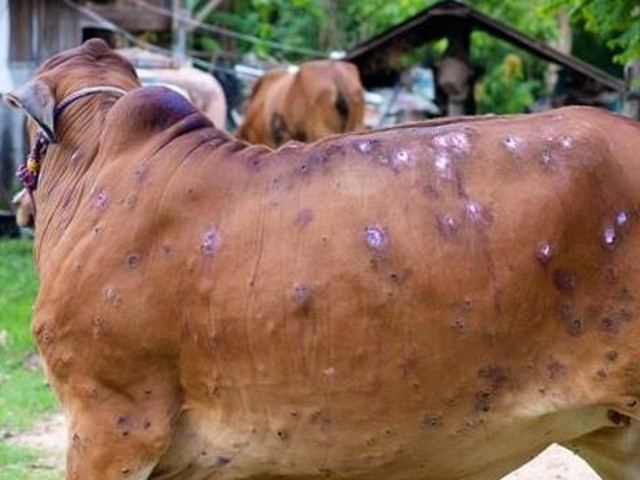
Livestock and cattle in and around the city have started becoming infected with lumpy skin disease (LSD) once again. Infections have been confirmed in dozens of animals as of Saturday.
Sources said the virus spread again in the city, neighbouring regions and other locations, reportedly due to the district administration and livestock department's alleged ignorance and negligence. It is expected that the resurgence of LSD will cause the deaths of dozens of animals.
Cattle farmer Chaudhry Javed Iqbal that the administration and livestock department to go visit fields and educate farmers. According to him, animal faeces containing blood are a sign of the infection. The administration and the department, Iqbal claimed, have been largely uninvolved in the protection of cattle, despite the fact that many farmers’ livelihoods depend on the animals.
There is also chance that this infection will spread to sacrificed animals if it is not stopped in time. With Eidul Azha on the horizon, the resurgence of the virus will spread panic and anxiety among farmers in the region.
LSD spread rapidly among cattle across the country through much of 2022, with 190,000 cattle heads infected and 7,500 dying of the affliction. Rain-induced floods during that year exasperated the situation.
According to the details available with The Express Tribune, over 35,000 animals were infected in Punjab as of September 2022. Of those infected, 1,242 died.
As of September last year, Pakistan had a cattle population of 100 million, of which a little over 7.3 million were vaccinated against the bovine disease.
Sindh’s livestock researchers have managed to develop a vaccine with Turkish support, as the Sindh government had imported nearly four million LSD vaccine doses from Turkey to not only save the animals but also to start its local production.
Support from the Food and Agriculture Organisation of the United Nations further accelerated the process. Over 141,000 animals recovered from the disease, and according to researchers, the recovery rate was deemed satisfactory.
During the outbreak last year, livestock and dairy development experts said that LSD was not transmittable to humans and the milk and meat of infected cattle were completely fit for consumption.
Livestock and Dairy Development Rawalpindi Division Director Dr Sarfraz Ahmed Chatha clarified that LSD is caused by a virus that is a member of the capripox family. The virus mainly infects cows, while buffaloes are immune to the virus. “The ratio of lumpy skin-infected animals is very low and at no level does the disease pose a threat to humans,” he said adding that the LSD resulted in reduced milk production, abortions in animals, infertility, and poor-quality hide, leading to economic losses. “The virus does not cause chronic illness,” he said.
Published in The Express Tribune, June 4th, 2023.













1727268465-0/Untitled-design-(42)1727268465-0-270x192.webp)




COMMENTS
Comments are moderated and generally will be posted if they are on-topic and not abusive.
For more information, please see our Comments FAQ